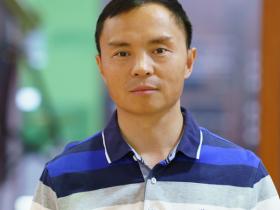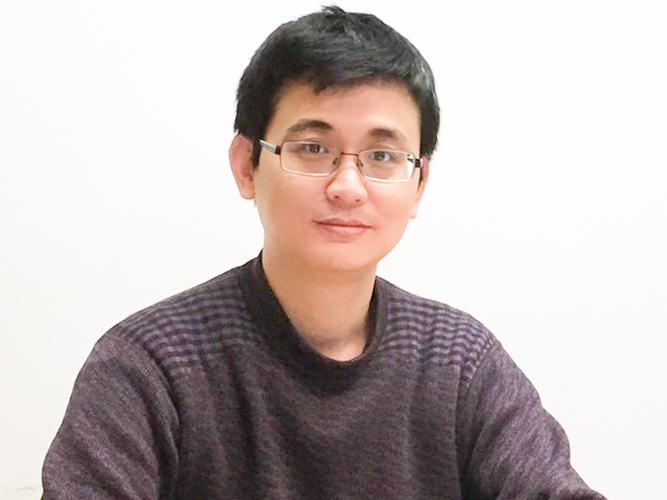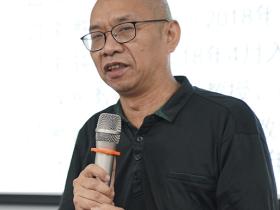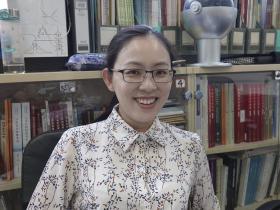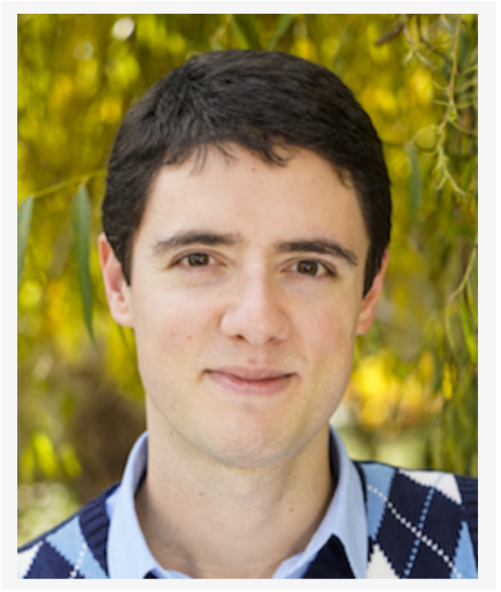
Short Bio
Currently an Associate Professor in the Department of the History of Science of the School of Humanities at Tsinghua University, I teach courses of history of science, environmental studies, and Ancient Greek. Before joining Tsinghua, I have taught at The Hebrew University of Jerusalem and I have been a research fellow, among others, at Harvard University’s research institute Dumbarton Oaks, at the Max-Planck Institute for the History of Science, and at the Polonsky Academy for Advanced Studies.
Research Interests
History of Astronomy, History of Mathematics, Cross-cultural History of Ideas, History and Philosophy of Artificial Intelligence, Environmental History, Historiography of Science, Ancient Greek and Latin Manuscripts
Grants, Honors, and Awards
Tsinghua University Initiative Scientific Research Program Grant n. 20233080008 (Principal Investigator)
Ca’ Foscari University of Venice Visiting Fellowship
Polonsky Fellowship
Dumbarton Oaks Research Fellowship
German Center of Venetian Studies (DSZV) Postdoctoral Fellowship
- W. Mellon Fellowship
Max Planck Institute for the History of Science Predoctoral Fellowship
LMU Graduate Center PhD Dissertation Completion Grant
Selected Publications
[with P.D. Omodeo] Celio Calcagnini’s Quod caelum stet, terra moveatur: scientific context and translation. Physis. International Journal for the History of Science (in press) [in Italian]
Cultures of Mathematical Practice in Alexandria in Egypt: Ptolemy and its Commentators (2–4 c. CE). In B. Sriraman (ed.), Handbook of the History and Philosophy of Mathematical Practice (Cham: Springer, 2024): 1727–1744.
Copernicus and Axiomatics. In B. Sriraman (ed.), Handbook of the History and Philosophy of Mathematical Practice (Cham: Springer, 2024): 1789–1805.
The Relationships between Scientific and Theological Discourses at the Crossroads between Medieval and Early Modern Times and the Historiography of Science: A Case Study from Fourteenth-Century Byzantium. Transversal: International Journal for the Historiography of Science 15 (2023): 1–15.
The Archimedean Revolution of Nicolaus Copernicus. Transversal: International Journal for the Historiography of Science 14 (2023): 1–11.
The cosmos in your hand. A note on Regiomontanus’ astrological interests. Centaurus 64.2 (2022): 361–396.
Arabic and Persian Terminology in Mathematical Astronomy from the late Byzantine Empire. In P. Athanasopoulos (ed.) Translation Activity in Late Byzantine World (Berlin: De Gruyter, 2022): 63–84.
[with P. D. Omodeo] The Disputational Culture of Renaissance Astronomy: Johannes Regiomontanus’s ‘An Terra Moveatur An Quiescat’. In Meelis Friedenthal, Hanspeter Marti, and Robert Seidel, eds. Early Modern Disputations and Dissertations in an Interdisciplinary and European Context (Leiden: Brill, 2021): 233–254.
Mathematics and Cultures across the Chessboard: The Wheat and Chessboard Problem. In B. Sriraman (ed.) Handbook of the Mathematics of the Arts and the Sciences (Cham: Springer, 2021): 2421–2443.
Challenging the Historiography of Philosophy, Science, and Religion through Greek-into-Arabic Translations from Eleventh-century Antioch. Review of Alexandre M. Roberts. Reason and Revelation in Byzantine Antioch: The Christian Translation Program of Abdallah ibn al-Fadl. Al-ʿUṣūr al-Wusṭā 29.1 (2021): 343–347.
Hybrid knowledge and the historiography of science: Rethinking the history of astronomy between second-century CE Alexandria, ninth-century Baghdad, and fourteenth-century Constantinople. Transversal: International Journal for the Historiography of Science 11 (2021): 1–13.
Scientific Interactions in Colonial, Multilinguistic, and Interreligious Contexts: Venetian Crete and the Manuscript Marcianus Latinus VIII.31 (2614). A Preliminary Study. Centaurus 63.2 (2021): 339–352.
Persian Astronomy in Byzantium. A Contribution to Byzantine Studies and the History of Science (Munich: utzverlag, 2020). [in German]
The Transmission of a Byzantine Astronomical Commentary: Philological Problems and Editing Criteria. Revue d’Histoire des Textes n.s. 15 (2020): 31–70. (in Italian)
The Reception and Rejection of “Foreign” Astronomical Knowledge in Byzantium. In J. Althoff-D. Berrens-T. Pommerening (eds.) Finding, Inheriting or Borrowing? (Bielefeld: Transcript Verlag, 2019), 167–184.
Islamic Astronomy in Fifteenth-century Christian Environments: Cardinal Bessarion and his Library. Journal of Islamic Studies 30.3 (2019): 338–366.
Copernicus on Film … Again. Journal for the History of Astronomy 50.1 (2019): 116–117.
Persian Astronomy in the Greek Manuscript Linköping Kl. F. 10. Scandinavian Journal for Byzantine and Modern Greek Studies 4 (2018): 65–88.
The Paradosis of the Persian Tables, A Source on Astronomy between the Ilkhanate and the Eastern Roman Empire. Journal for the History of Astronomy 49.2 (2018): 239–260.
Cardinal Bessarion Learning Astronomy from John Chortasmenos. Byzantinische Zeitschrift 111.1 (2018): 1–38. (in Italian)
On the Greek Chiromantic Fragment: An Update. Phasis. Greek and Roman Studies 20 (2017): 4–38.



